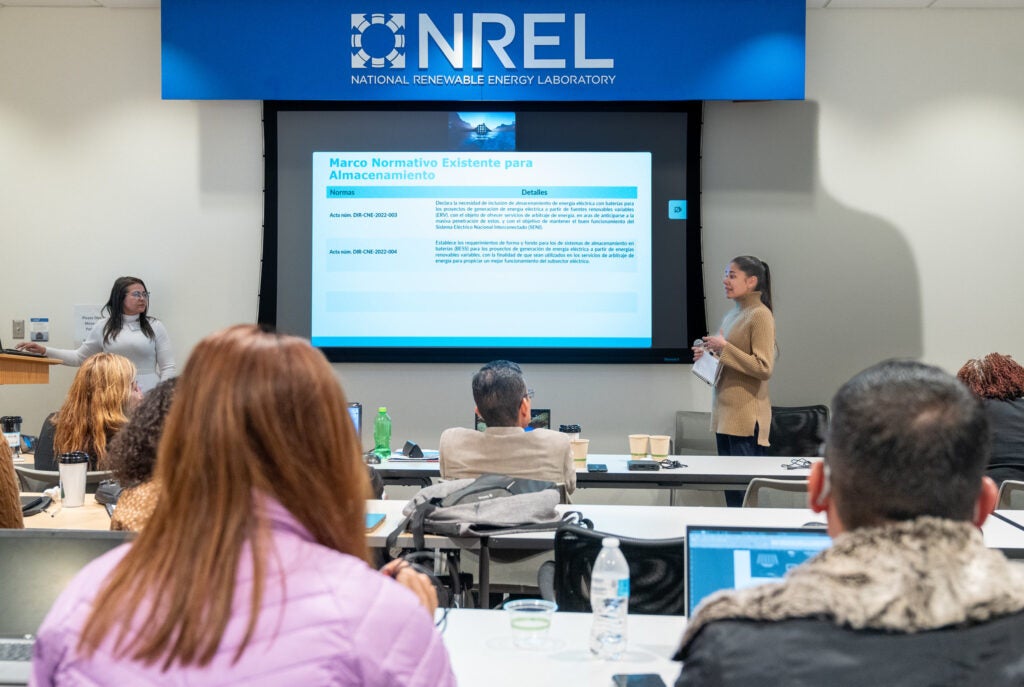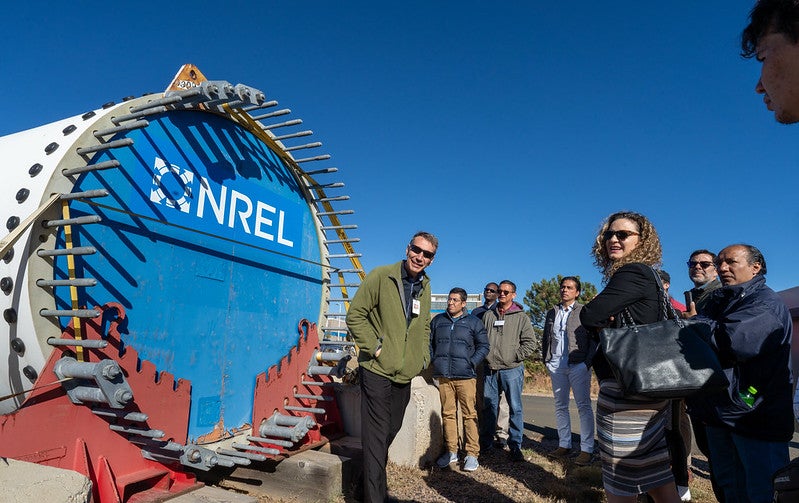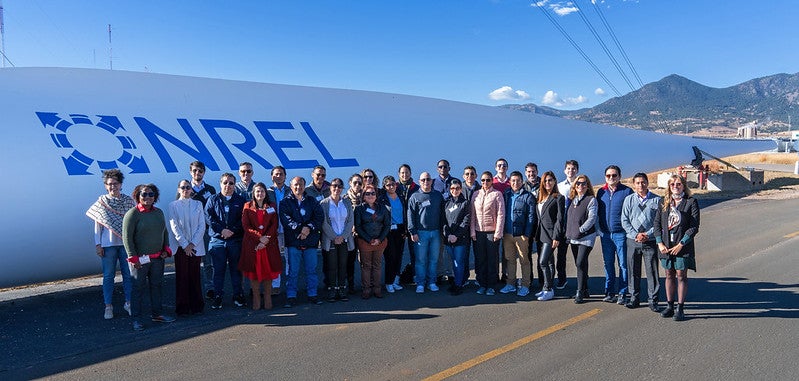The National Renewable Energy Laboratory (NREL), in collaboration with the Inter-American Development Bank (IDB), and with the financing support of the Climate Investment Funds (CIF), conducted a series of workshops and technical visits as part of the RELAC initiative[1].
The collaboration aimed to enhance the technical capabilities of the participants so that they could develop action plans focused on promoting an enabling regulatory environment and the technical conditions to accelerate the integration of energy storage into the electrical systems of their respective countries. The event was part of a collaborative initiative to address the critical need for developing technical capabilities in energy storage and advancing the integration of renewable energies in the region through the regional Technical Cooperation “Promoting Energy Storage Markets in LAC for a Resilient and Low-Carbon Multisectoral Coupling”.

The workshop series took place starting in April 2023 and included seven virtual seminars and a one-week on-site technical visit to the NREL campus in Denver, Colorado, from October 16th to 20th. This event successfully brought together 24 delegates, including 11 women, from 11 member countries of the RELAC Initiative, including Bolivia, Barbados, Chile, Costa Rica, Ecuador, El Salvador, Guatemala, Honduras, Peru, the Dominican Republic, and Uruguay.

Throughout the workshops, technical capacities in the planning, deployment, integration, and operation of energy storage solutions were strengthened. Personalized technical assistance from experts was also provided to expedite the implementation of specific projects and regulations.
Taking advantage of the technical assistance from NREL experts and other sector specialists, at the end of the visit, participants had the opportunity to present their proposals for action plans focused on energy storage. These plans were primarily structured around various strategic axes, such as:
- Development of proposals for regulatory/normative changes to facilitate the deployment of energy storage systems.
- Pilot project development with technical assistance from the IDB, NREL, and other partner agencies of the RELAC initiative.
- Modeling and planning the integration of energy storage systems through tools provided by NREL.
- Feasibility studies and financing of grid systems to support the deployment of storage technologies in national electrical systems.
- Utilization of storage technologies to facilitate energy access provision in remote areas through microgrids.
In addition to receiving support and expert guidance from NREL and the IDB to review and enhance their proposals, participants also had the opportunity to interact with representatives from agencies such as the Global Energy Alliance for People and Planet – GEAPP, who expressed their intention to support energy storage initiatives in RELAC countries. This further enriched the discussion and collaboration with partner agencies of the initiative.

In conclusion, the collaboration between NREL and the IDB, within the framework of the RELAC initiative, has emerged as a strategic alliance to promote more robust and resilient energy storage markets in Latin America and the Caribbean. NREL, with its global leadership in energy storage research, brings a wealth of knowledge and expertise in various areas of storage, energy efficiency, and new technologies.
On the other hand, the IDB will continue to actively contribute to the RELAC initiative, providing essential financial and technical assistance, helping countries in the region deploy advanced energy infrastructure, and developing strong regulatory frameworks for energy storage and the widespread deployment of renewable energy.
[1] The RELAC initiative aims to promote its member countries to achieve at least a 70% share of renewable energy in their electrical systems by 2030.
This blog entry was created in collaboration with Gabriela Gutiérrez, consultant for the Energy Division of the RELAC initiative.
All photographs were taken by Werner Slocum, NREL.


Leave a Reply